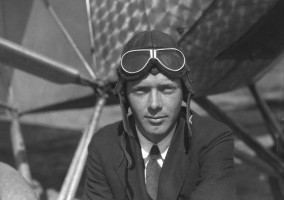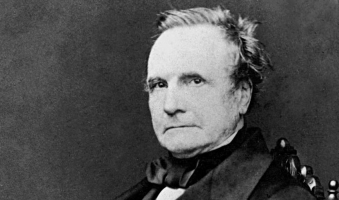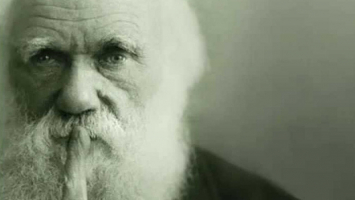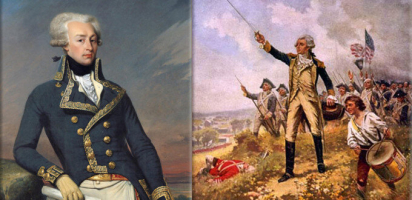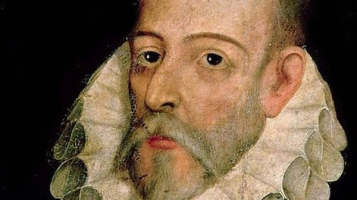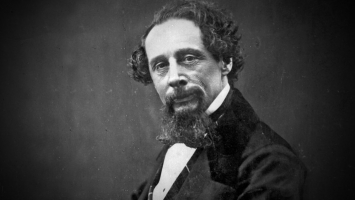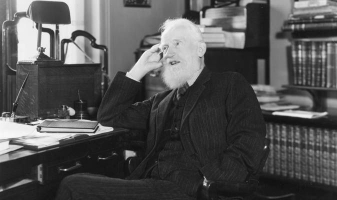Top 8 Interesting Facts about Charles de Gaulle
Charles André Joseph Marie de Gaulle's name is inextricably linked to 20th-century French history. During World War 2, he led the Free French and served as the ... read more...nation's president as well as an army general. De Gaulle was born on November 22, 1890, in the north of France. He was the third child to be born to Henri de Gaulle, a history professor, and Jeanne de Gaulle, a wealthy descendant of the Lille family. Charles de Gaulle, one of France's greatest presidents, made a huge impact on contemporary French history. Below is a list of Charles de Gaulle's top 8 most interesting facts.
-
Perhaps as a result of the political climate in France during his formative years and his family's historical history. Early on, Charles developed a love of French history. His father encouraged his children to argue over philosophical and historical issues in their free time at home. De Gaulle gained knowledge of French history from the conversations.
He was raised at Saint-Cyr and was educated there after being born in Lille. He served as an honorable officer in the First World War and sustained multiple injuries before being taken prisoner at Verdun. During the interwar years, he was an advocate for mobile armored divisions. In May 1940, he directed an armored division that conducted a counteroffensive against the German invaders, earning him the position of Undersecretary for War.
After rejecting his government's agreement with Germany, De Gaulle fled to England and exhorted the French in his Appeal of June 18 to carry on the fight and oppose occupation. His grandfather was also a historian, and his grandmother wrote poems on early Christianity. Because of all these factors, he had a keen interest in French history. He was particularly interested in the story of the 1870 German surrender of the French at Sedan.
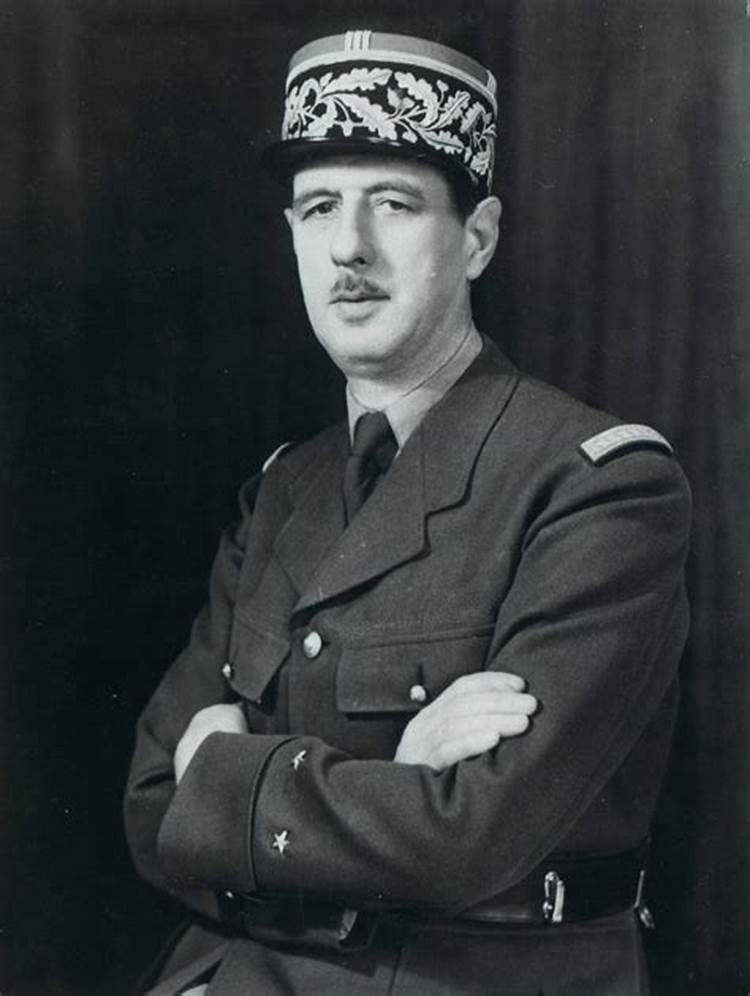
Source: flickr.com 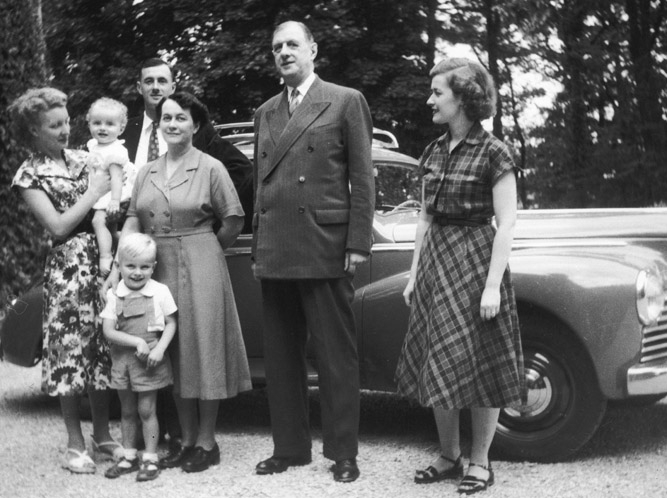
Source: bridgemanimages.com -
In the early 1900s, Charles de Gaulle, who was over six feet tall, was the ideal soldier. He enlisted as a French army cadet at the St. Cyr Military Academy in 1909, and in 1910, he joined the Arras-based 33rd Infantry Regiment of the French Army. De Gaulle was hurt while attempting to cross the Dinant Bridge at the outbreak of the First World War when he was a lieutenant. He sustained another wound in 1915, perhaps during one of the clashes with Artois or Champagne. After suffering injuries during intense combat near the village of Duoaumont during the Battle of Verdun, he was eventually detained as a Captain.
He attempted several efforts to flee, and as you would have predicted, he spent a lot of time in isolation. His 33rd Infantry Regiment, one of the strongest fighting groups in France, was sent into battle against German advancing units at Dinant as soon as the First World War broke out in 1914. Charles De Gaulle was a brave soldier who attained the rank of army captain. He was injured in 1916 and taken prisoner by German troops.
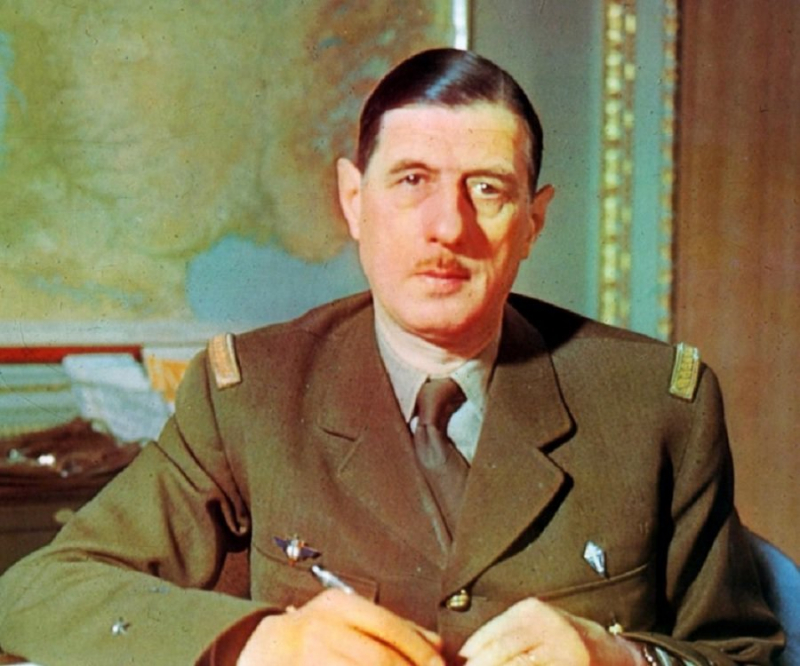
Source: Famous People 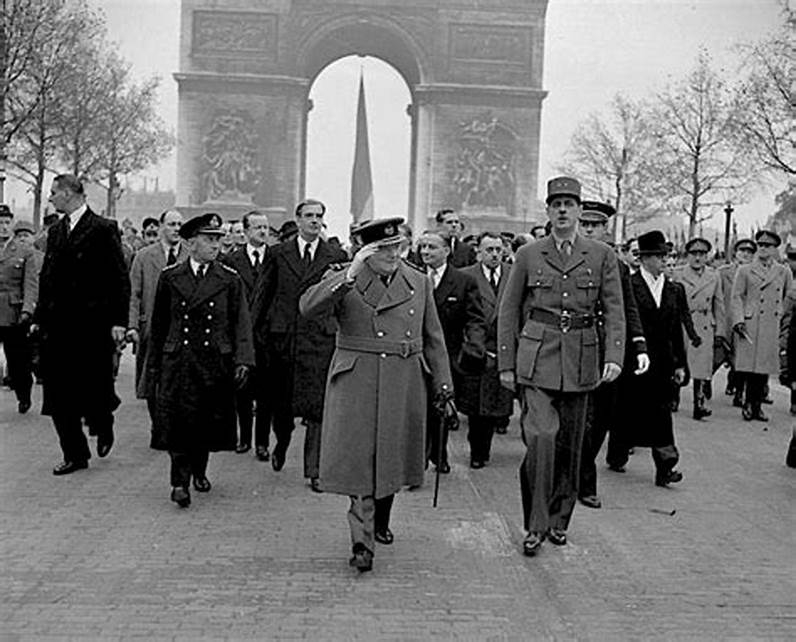
Source: Consortiumnews.com -
On April 6, 1921, Charles and Yvonne were married. She was famed for saying, "The president is temporary—but the family is permanent." She and her husband nearly escaped an assassination attempt on August 22, 1962, when their Citroen DS was the target of machine gun fire planned by Jean Bastien-Thiry at the Petit-Clamart. Like her husband, Yvonne de Gaulle was a fervent Catholic who opposed prostitution, the sale of pornography at newsstands, and the broadcasting of nudity and sex. For this, she was given the nickname Tante (Auntie) Yvonne. Later, she made fruitless attempts to persuade de Gaulle to outlaw miniskirts in France.
Yvonne was reputed to be very discreet; as such, despite numerous appearances, she never gave any radio or televised interviews, and the broader public never learned the sound of her voice. Philippe (1921-), Elisabeh (1924-2013), and Anne (1928-1948) were the de Gualle's three children.
A severe case of Down syndrome was diagnosed a few months after Anne's birth. From the beginning, De Gaulle and his daughter with a disability were never apart. De Gaulle was completely dedicated to Anne, probably in part because of her infirmity. He loved to stroll around their home's grounds holding her hand, according to a neighbor in Colombey. He would gently stroke her while they conversed about topics she could understand. This is a less-commonly seen aspect of De Gaulle. After the War, Anne succumbed to pneumonia. She had just turned 20. To help children with disabilities, De Gualle founded the La foundation Anne-de-Gaulle charity.
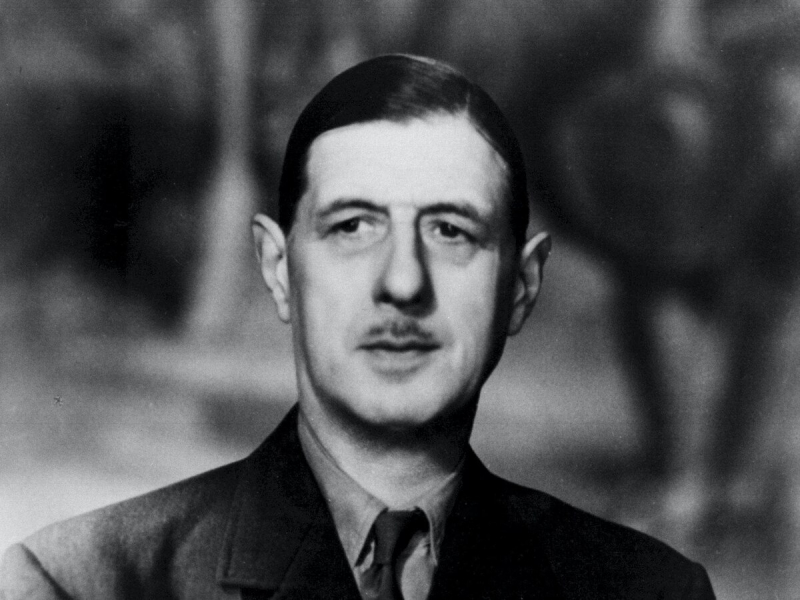
Source: shropshirestar.com 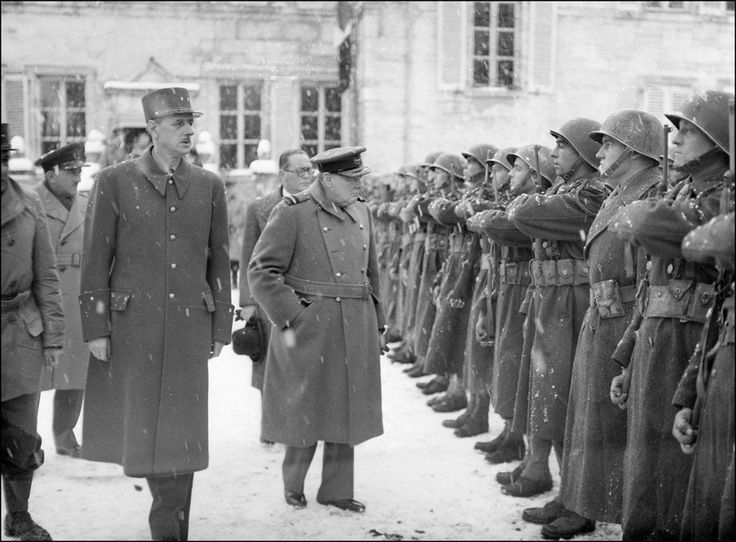
Source: Pinterest -
General Charles de Gaulle is acknowledged as the head of the Free French Forces on June 28, 1940, having established his headquarters in England following the installation of a puppet government in his native France. The Free French Forces are committed to the defeat of Germany and the liberation of all of France. The struggle against the Germans was nothing new for Charles de Gaulle. He battled in Verdun in World War I and suffered numerous wounds.
At the commencement of World War II, De Gaulle was in charge of a tank brigade. Due to his standing as a brave leader, he was elevated to brigadier general in May 1940. During the German invasion of France, he was appointed undersecretary of state for defense and war in the Reynaud administration. However, when Reynaud resigned and Field Marshal Philippe Petain, a virtual puppet of the German occupiers, took charge, he departed for England. On June 18, de Gaulle broadcast a message urging his countrymen to reject Petain's demand for an armistice and continue fighting under his direction. Ten days later, Britain publicly recognized de Gaulle as the head of the "Free French Forces," which at the time consisted primarily of French military forces already stationed in England, volunteers who were French nationals already residing in England, and French navy units.
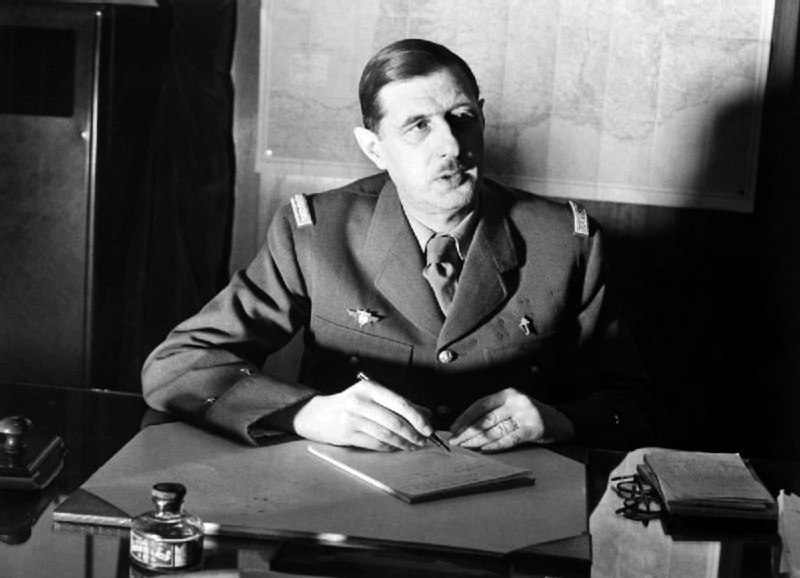
Source: defensemedianetwork.com 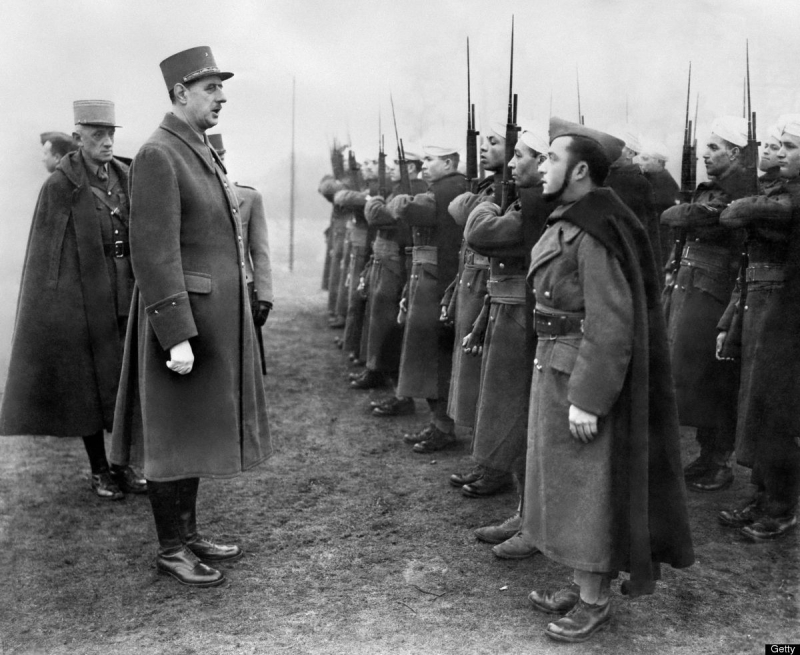
Source: Pinterest -
De Gaulle was still in control of tank regiments when World War II began. In May 1940, he attempted to block the German advance on Sedan. But after failing, he was compelled to leave. His accomplishments led to his promotion to brigadier general. After the French were beaten, Philippe Petain negotiated a peace settlement with Hitler, agreeing to allow the Germans to control the majority of France. He collaborated with the Nazis and established his own government in Vichy as a result. De Gaulle rebuffed this new government and fled to London.
De Gaulle organized a liberation effort from London with the help of the leaders of the resistance and the allies. He used the radio to inspire the French to rebel against the German occupation. His troops were mostly stationed in the colonies in Asia and Africa. Together with the British, they invaded Madagascar in 1942 and Syria in 1941, respectively. In January 1943, he was invited to the Casablanca Conference, which brought together the presidents of the United States, Great Britain, and de Gaulle's rival, Henri Giraud. In June 1943, he met with the leaders of the French resistance in Algeria. From there, he won the French presidential election. He began operations in Algiers but moved to London in 1944.De Gaulle set up his headquarters in Paris after the June 1944 Normandy landings and contributed to the liberation of France. Then, de Gaulle was acknowledged as the legitimate ruler by the Allies. After the war ended, de Gaulle took an active part in the formation of the United Nations and fought for France to be granted an occupation zone in Germany.
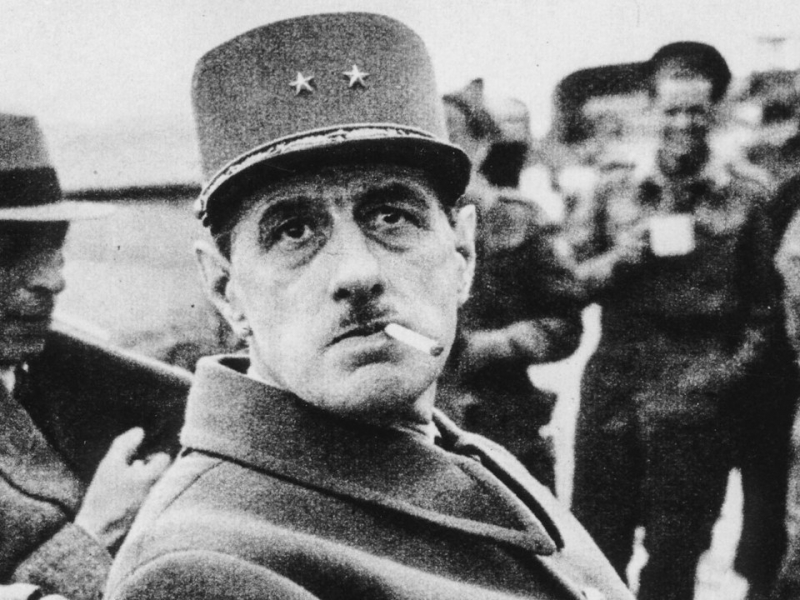
Source: cigarmonkeys.com 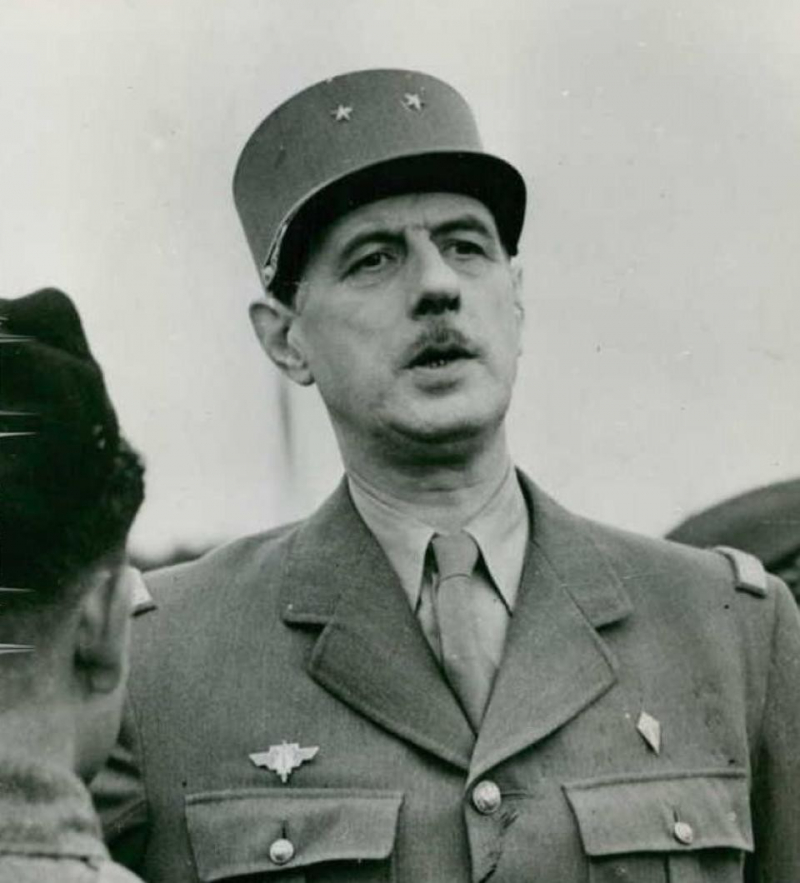
Source: The New York Times -
The armistice between France and Germany was signed on June 21, 1940. The accord was immediately denounced by De Gaulle. The New French government responded by revoking his rank to brigadier-general. On August 2, 1940, he was tried and found guilty in absentia by a French military court, and was sentenced to death, had his military rank suspended, and had his possessions seized. While still a resident of London at the time, Charles de Gaulle continued to motivate the French resistance movements with frequent radio broadcasts.
De Gaulle was executed in absentia on August 2 by a French military court for his crimes. (Probably on the order of the German invaders). De Gaulle would prove an adept wartime politician, finally winning recognition and respect from the Allies and his fellow countrymen. He returned to Paris from Algiers, where he had moved the headquarters of the Free French Forces and formed a “shadow government,” in September 1943. He went on to head two provisional governments before resigning.
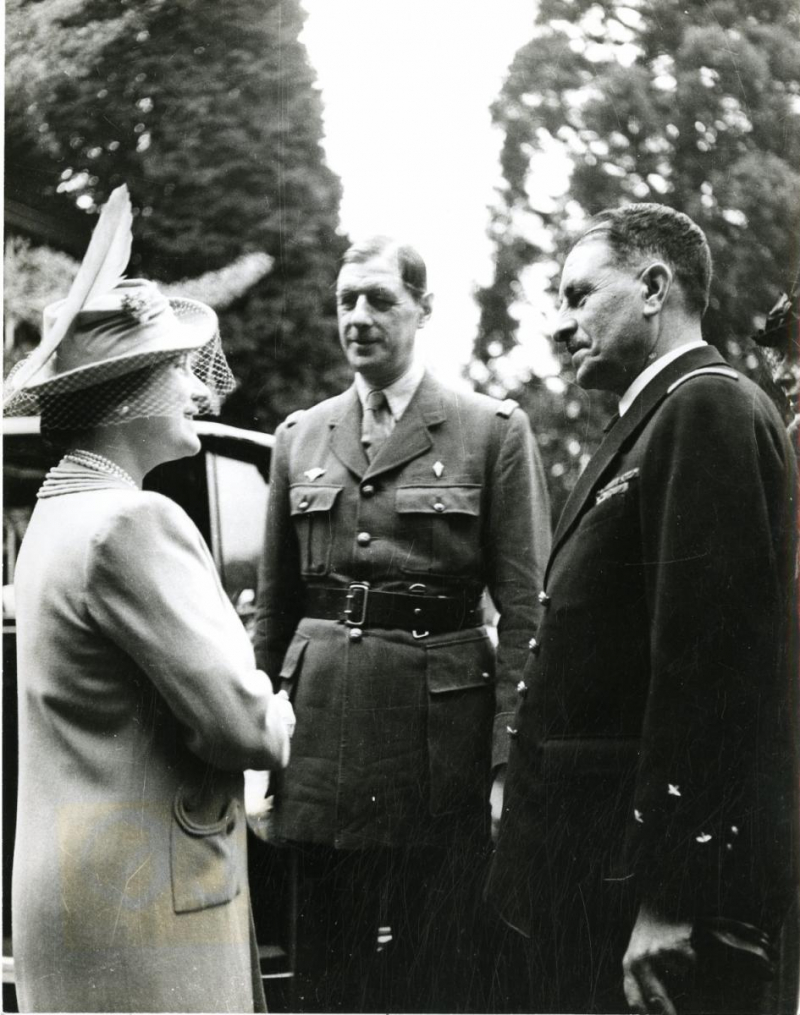
Source: AbeBooks 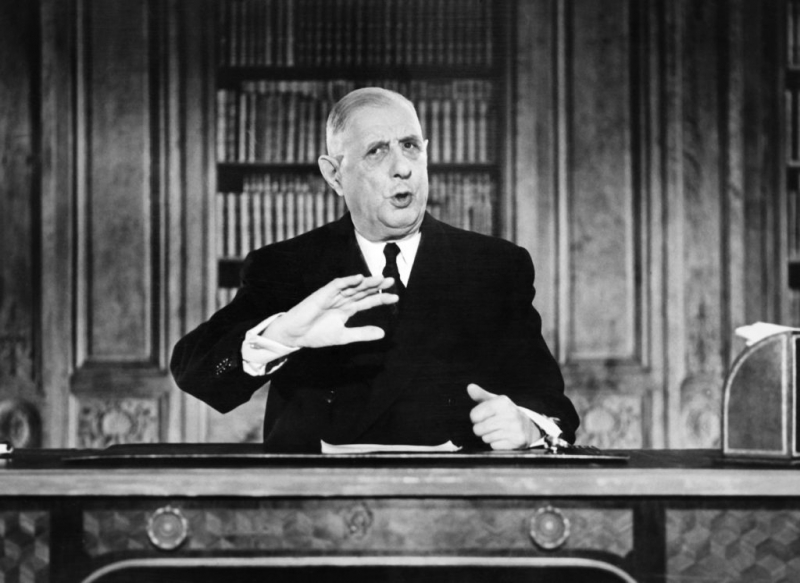
Source: POLITICO -
The most notorious of his assassination attempts happened in 1962 when 140 bullets were fired into his car as it was being driven from the Elysée Palace to Orly Airport. The automobile was what kept him alive even though the group blew out three tires and killed two bodyguards. The car's suspension system enabled the driver to accelerate out of a front-wheel skid as De Gaulle and his wife dove. The gang wanted to kill De Gaulle because they thought he had betrayed France by allowing Algeria's independence. They were the last people in France to be put to death by firing squad for their crime. De Gaulle continued to be devoted to his Citröen as a result, incidentally.
For a number of reasons, including their reliance on Algeria, their desire for Algeria's rich oil, and the fact that de Gaulle opposed the Vietnam War, stories claim that the CIA actively took part in efforts to overthrow de Gaulle. The most Game of Thrones way to try to kill him, according to rumors, was with a poisoned ring. In order to poison a ring that an elderly soldier would wear to a military event, French rebels turned to the CIA for help. De Gaulle would shake his hand, fall to the ground, and pass away, and the assassin would simply turn around and walk away. The anticipated event never happened. The reason De Gaulle is most well-known outside of France may be attributed to his leadership of a divided France during World War II. Following the invasion of England by the Nazis, he moved there and co-ruled with Churchill.
On his way back, he repeatedly dodged bullets. First, a soldier was shot and killed by another soldier while singing the "Marseillaise" when he was on board a ship. The second occurred not long after, during a celebration honoring the end of World War Two at Paris' Notre Dame Cathedral. Rapid gunshots was heard in the crowd, which was frequently interpreted as a second assassination attempt. De Gaulle handled each of these situations with composure and grace under duress. Undoubtedly, it wasn’t just the car that saved his life during the assassination attempt in 1962 – he had a great driver that managed to handle the car successfully, too. In other attempts, it was also his driver that saved his life. A year earlier, he had been travelling to his country house with his wife when his Citröen car came alongside a napalm bomb hidden under a sandpile on the road. De Gaulle’s favourite chauffeur, a man called Francis Marroux, rattled straight through the flames after de Gaulle urged him to go faster through the inferno as everything exploded in front of them.
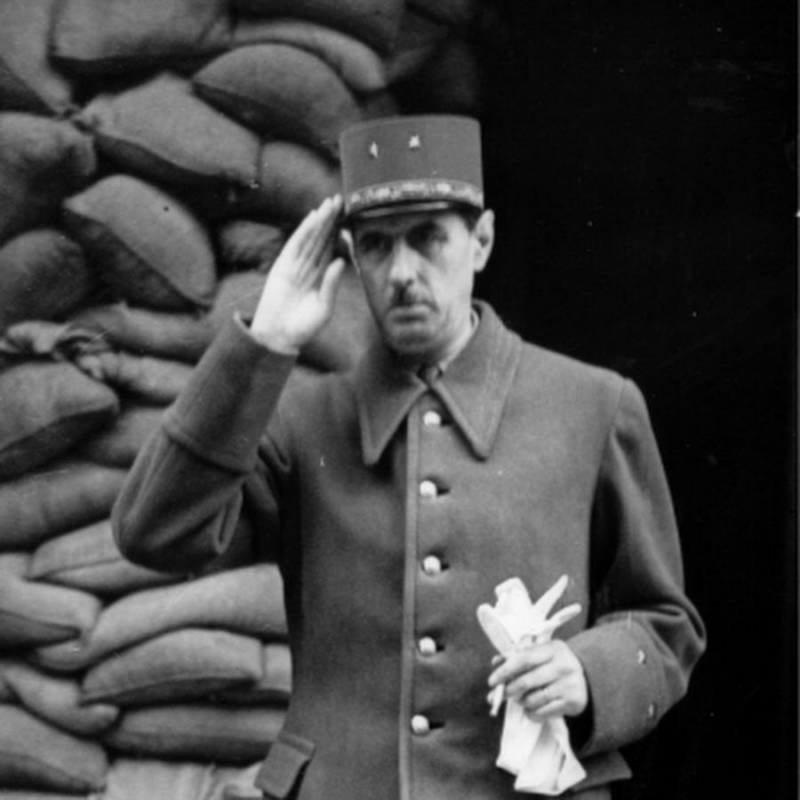
Source: YouTube 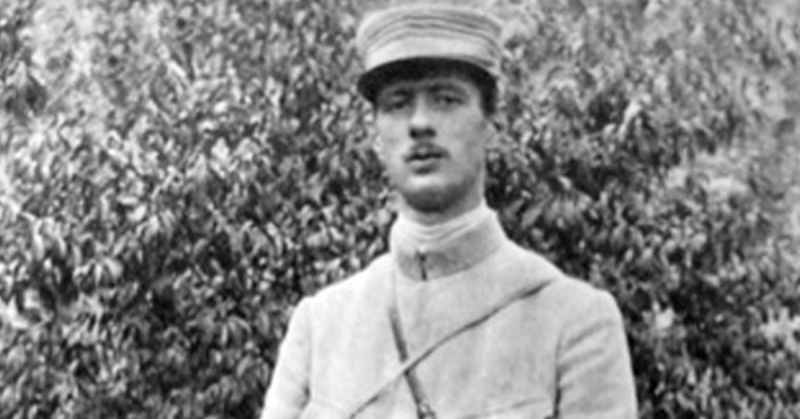
Source: curieuseshistoires.net -
When French President Henri Pétain agreed to an armistice with Nazi Germany in June 1940, De Gaulle traveled to London. He established the Free French Army there and won the allegiance of the French colonies. Following a successful campaign in North Africa by his soldiers, he was appointed leader of the French government in exile in June 1944. De Gaulle joyously marched into Paris on August 26 following the Allied invasion of France. In November, he was overwhelmingly selected to serve as France's interim president. However, he announced his resignation two years later, claiming he lacked the power to rule.
In 1947, he founded a new political party, but it only had average electoral success, and in 1953, he gave up politics altogether. However, De Gaulle agreed to head a new emergency administration in 1958 when a French colonial uprising in Algeria sparked a significant political crisis in France. Since he was regarded as the only leader with the strength and stature to handle the perilous situation, he was designated the virtual dictator of France with the power to rule by decree for six months. He was elected president of the Fifth Republic on December 21 after a national vote in September approved a new constitution of his design.During the next decade, President de Gaulle granted independence to Algeria and attempted to restore France to its former international stature by withdrawing from the U.S.-dominated NATO alliance and promoting the development of French atomic weapons. Student demonstrations and workers’ strikes in 1968 eroded his popular support, and in 1969 his proposals for constitutional reform were defeated in a national vote. On April 28, 1969, Charles de Gaulle, at 79 years old, retired permanently. He died the following year.
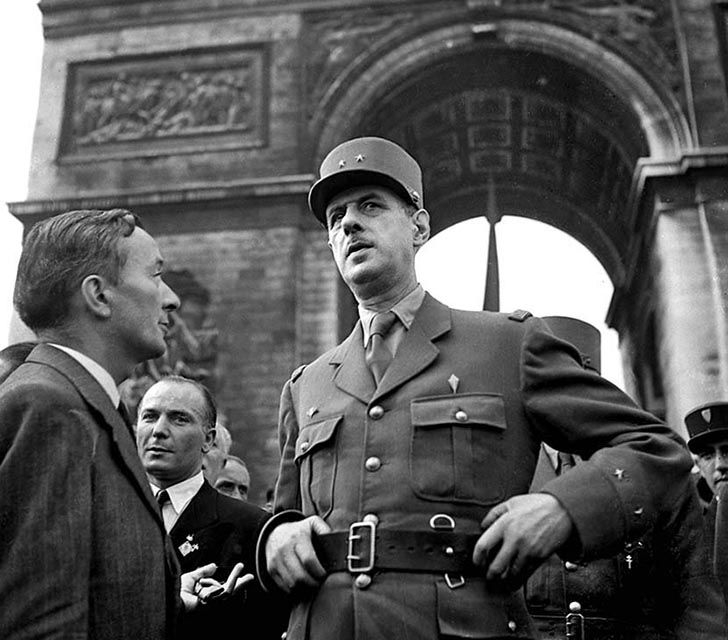
Source: pinterest.fr 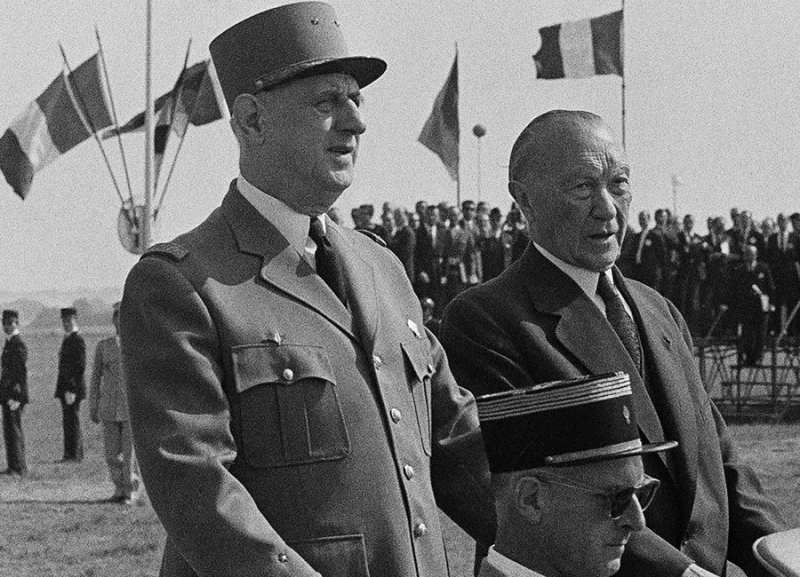
Source: rosaliecovest.blogspot.com










